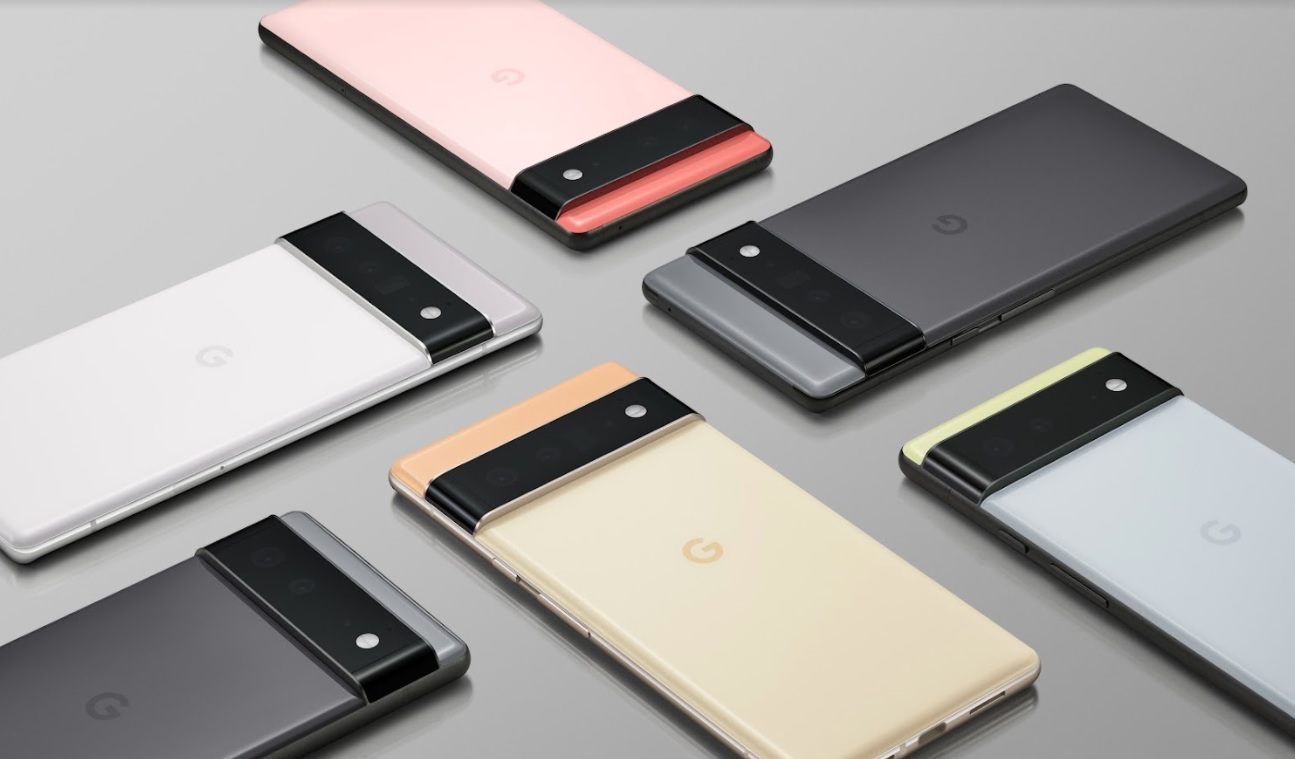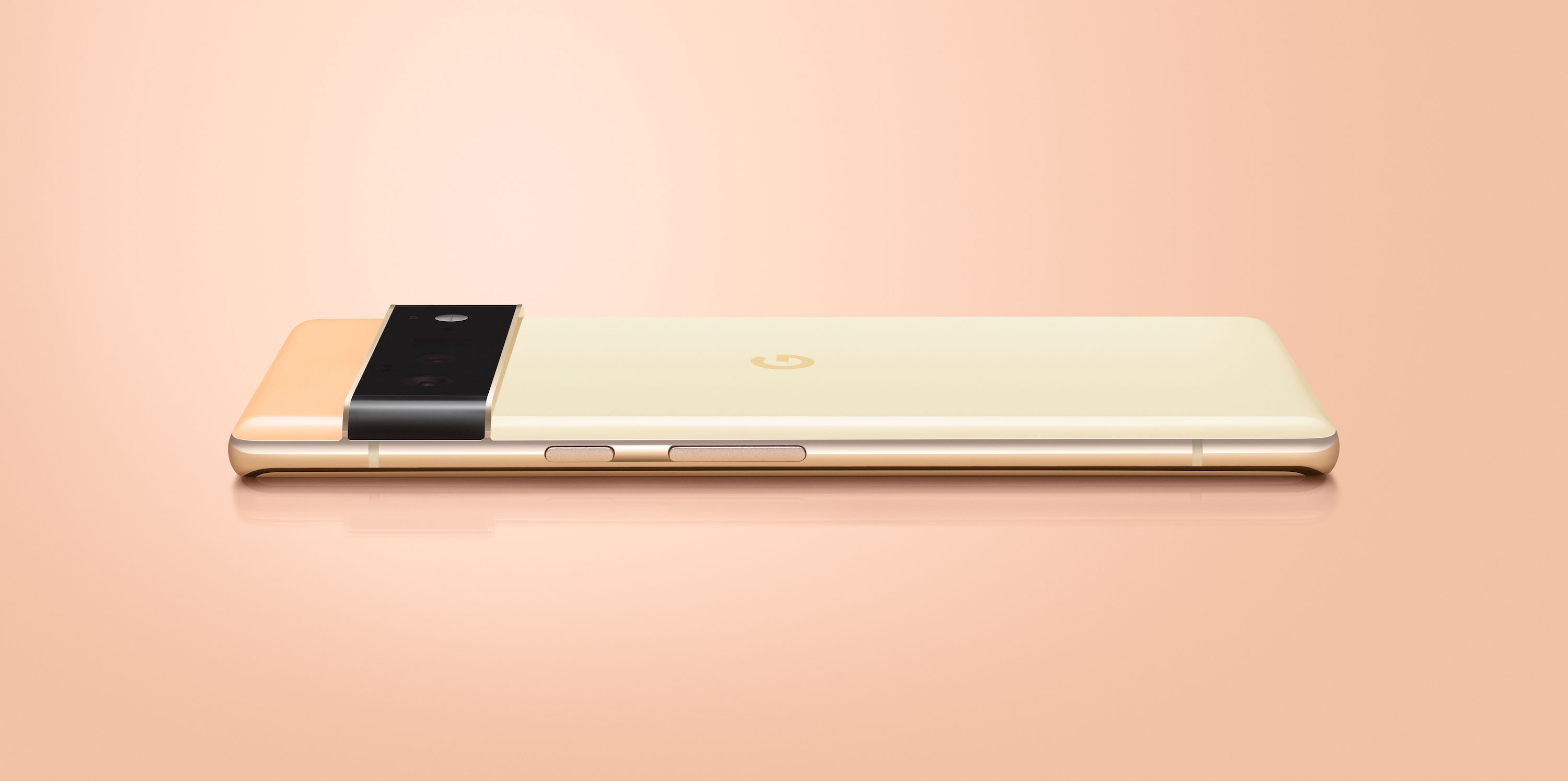Google Pixel 6 and Pixel 6 Pro officially revealed — meet the Tensor chip
Google Pixel 6 Pro and Pixel 6 are going to be AI-centric Android flagships

In a move that seemed to flip the bird at leakers, Google has just announced the Google Pixel 6 and Pixel 6 Pro, bringing back an XL Pixel phone while opting for a new premium design.
Set to launch this fall, Google didn’t go into too much detail about either new Pixel phone. But it did note it will come with the new Google Tensor system-on-chip (SoC), which aims to bring in more AI and machine learning features to the next-gen Pixels.
- Google Pixel 6 release date, price, specs and everything we know
- Google Pixel 6 vs Pixel 5: Biggest upgrades to expect
- Plus: The new iPhone feature I've been waiting for could finally be coming
Before we dig into that, the most striking thing about the Pixel 6 and Pixel 6 Pro is its design. We saw this teased in renders that we’re reportedly based on insider information. And it turns out those renders were pretty legitimate, with both Pixel phones featuring a large black rectangular camera bar across the top of the phones’ rears.
The leaked colors proved to be fairly on point as well, with Google showing a two-tone design in orange, white, gray, yellow and green; the majority of the glass rear appears to have a matte finish, whereas the space above the camera bar appears to have a brighter, glossier tone. This is reminiscent of the two-tone design the Pixels have used for years, only with it being paired back for the Google Pixel 5.

As for some key specs, the Pixel 6 sports a 6.4-inch FHD+ screen with a 90Hz refresh rate and a punch-hole selfie camera in the middle top edge of the display. The Pixel 6 Pro has the same design but has a larger curved 6.7-inch QHD+ display with a 120Hz refresh rate.
Around the back, the Pixel 6 has a wide and ultra-wide angle camera, though Google didn't mention any more specs for these snappers. And the Pixel 6 Pro gets a third camera in the form of 4x optical zoom folding lens.
Google Pixel 6 Tensor chip
The above tracks with the leaks we'd heard this year, but the Tensor SoC is more of a surprise. While we knew Google was working on its own custom chipset, formally called “Whitechapel,” the fact that it’s completely built around a mobile version of the machine learning hardware Google uses in its data centers is very interesting.
Get instant access to breaking news, the hottest reviews, great deals and helpful tips.
The Tensor processing Unit (TPU) of the chip will be a core part of the chip. We’ve seen this before when Apple added its Neural Engine processing unit to its recent A-series chips, only with Tensor, the AI tech will be a main part of the phone’s processing pipeline, adding AI to pretty much all of the phone.
The obvious area where this will be used is with photography and video, where machine learning will handle AI enhancements faster and better than before. Google said you can expect to see this in action with tricky photography situations. such as capturing rapidly moving subjects.
In addition, Google says that computational photography is coming to video, such as when shooting a sunset. Pixel phones have always delivered very impressive photography. So we'll have to wait and see if this extra AI power makes a truly noticeable difference in a mix of shots and situations.
Beyond that, the Tensor chip will boost things like speech recognition, supposedly letting the new Pixel phones deliver a more personalized experience for users. This is something we’d expect to see more about when the Pixel 6 and Pixel 6 Pro is revealed in full this fall, as well as core specs and pricing.
Speaking of price, it looks like both Pixel phones are shaping up to be proper flagship handsets once again like the Pixel 4 XL was, or at least tried to be. So we’d not be surprised to see the Pixel 6 Pro cost more than $1,000, especially given it’s using custom silicon. Google itself says that the Pixel 6 will be a "premium-priced product."
There’s no exact release date for the Google Pixel 6, beyond a vague “later this fall.” So we’d expect to hear more around October time.

Roland Moore-Colyer a Managing Editor at Tom’s Guide with a focus on news, features and opinion articles. He often writes about gaming, phones, laptops and other bits of hardware; he’s also got an interest in cars. When not at his desk Roland can be found wandering around London, often with a look of curiosity on his face.
 Club Benefits
Club Benefits





